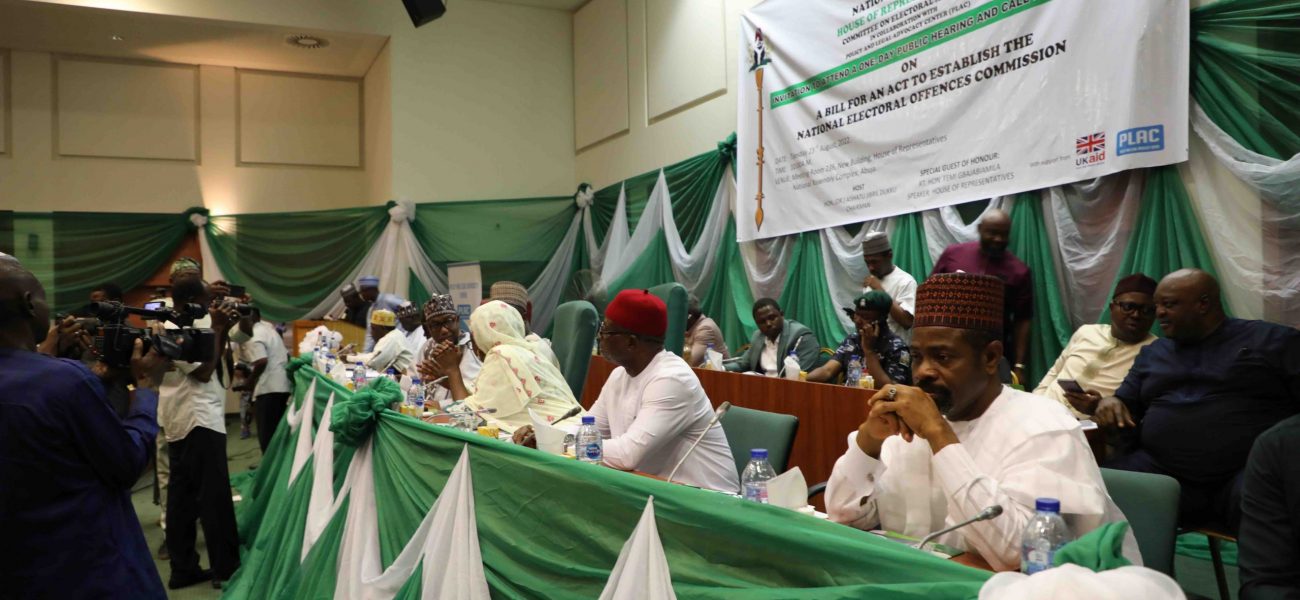The House of Representatives Committee on Electoral Matters on Tuesday, 23rd August 2022, held a public hearing on a bill for an Act to establish the National Electoral Offences Commission, 2022 with support from Policy and Legal Advocacy Centre (PLAC) and the United Kingdom Foreign and Commonwealth Development Office (FCDO). It was attended by members of the Committee, government agencies including the Independent National Electoral Commission (INEC), civil society organisations and other election stakeholders.
In her remarks, Chairman of the Committee, Hon. Aishatu Dukku assured Nigerians that the bill, when passed, will be used to facilitate the prosecution of electoral offenders by the Electoral Offences Commission, adding that several countries around the world have similar commissions established for the same purpose. In his remarks, Executive Director of PLAC, Clement Nwankwo noted the importance of the bill to the electoral process, to support the work of INEC and other stakeholders in improving elections. He emphasised the need for the independence of the Commission and insulation from politics. To this end, he recommended that membership of the Commission should be modelled after the membership of INEC. He also recommended that the Commission should be empowered to make rules and regulations with respect to its duties, functions or powers, as opposed to the Attorney General of the Federation as proposed in the bill.
Representative of the UK FCDO, Campbell McDade in his goodwill remarks, stated that free, fair and credible elections are non-negotiable in a democracy and an Electoral Offences Commission would be vital towards achieving this. He added that the conduct of elections in all countries must meet internationally accepted standards.
INEC Chairman, Prof. Mahmood Yakubu expressed the Commission’s full support for the establishment of the National Electoral Offences Commission, to tackle election offences, as the current responsibilities of INEC are overwhelming. According to him, the effect of the bill if passed into law, will be far-reaching in bringing the sponsors of electoral malpractices to book. The bill was largely welcomed at the public hearing by stakeholders, although there were concerns raised about the inclusion of government agencies in its composition and the steep penalties proposed for offences. Some of the stakeholders noted that the membership for the Commission should be inclusive and gender reflective, while others recommended some modifications to the qualifications and tenure for the Office of the Chairman of the Commission.
Click to see PLAC’s Factsheet on the bill: https://t.co/oQPc6Qowq4

